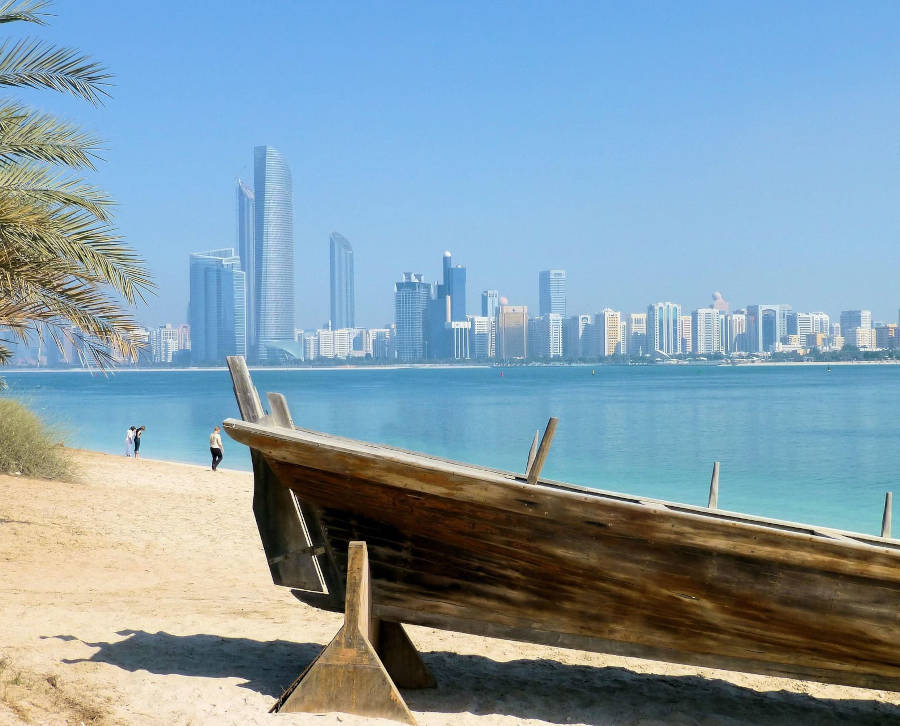
Expat retirement: Which countries are affected by Frozen State Pension?
Frozen UK State Pension Explained
Article updated: 29 September 2025. When retiring abroad, understanding the impact of the UK’s frozen State Pension policy is crucial. Over half a million retirees face financial challenges as their pensions remain stagnant in certain countries. This article explores how the frozen pension affects expats, outlining which countries are impacted and offering advice on how to navigate the issue. If you are planning to retire abroad, it is essential to understand how this policy might impact your long-term finances.TL;DR
If you live outside the UK, your UK State Pension may be “frozen,” meaning it doesn’t increase each year unless you live in a country with an indexation agreement with the UK. This can significantly reduce your pension’s value over time. Whether your pension rises depends on where you live, and planning for long-term income needs is crucial if you retire abroad.
Understanding the UK’s Frozen Pension Policy
In the UK, pensioners benefit from the triple lock system, which ensures that State Pension payments increase annually by the highest of three measures: 2.5%, price inflation, or average wage growth. This system is designed to maintain the purchasing power of your pension over time. However, if you retire outside the UK, you may find that your State Pension payments are frozen — meaning they remain at the level they were at either when you first received them or when you moved abroad. As of 2023, over 520,000 UK pensioners overseas are affected by this policy, according to the All-Party Parliamentary Group on Frozen British Pensions. This figure has grown by 10% in the past decade, underlining the rising concern for retirees. This policy can have a major impact on your retirement income as living costs rise. For example, in Australia, where UK pensions are frozen, a pensioner who retired 20 years ago receives just £4,140 per year, compared to £11,500 if they had remained in the UK. With the cost of living in Australia consistently higher than in the UK, the real value of their pension has been eroded significantly.
Case Study: Steve Thompson – A British Retiree in Thailand
Background
Steve Thompson, aged 72, moved to Thailand in 2017 after a long and successful career in the UK. Attracted by the lower cost of living and vibrant culture, he envisioned a peaceful and fulfilling retirement.
However, like many British pensioners abroad, Steve soon encountered financial challenges due to the UK’s frozen pension policy.
Steve’s Situation
When Steve retired, his UK State Pension was set at £6,360 per year. If he had remained in the UK, his pension would have benefited from the triple lock system and today would be worth approximately £11,500 per year.
Because he retired to Thailand, his pension was frozen at £6,360 and will stay at that level for the rest of his life, leaving him tens of thousands of pounds worse off over time.

The Impact
This shortfall has had a major impact on Steve’s retirement lifestyle. Although Thailand’s cost of living is lower than the UK’s, rising prices have eroded his income.
What began as a comfortable retirement has become a balancing act, with Steve forced to make difficult choices about spending to meet his basic needs. He has increasingly dipped into his savings, putting his long-term financial security at risk and leaving him feeling unsupported by a system that no longer reflects his reality as a retiree abroad.
Where Are UK Pensions Frozen?
The policy on freezing pensions is inconsistent, and it can be confusing to determine where it applies.
Some countries, including many former Commonwealth nations such as Canada, Australia, and New Zealand, are subject to frozen pensions.
Conversely, there are countries with no historic ties to the UK, such as Puerto Rico and Macedonia, where pensions are not frozen.
Whether your State Pension will be affected depends entirely on where you decide to spend your retirement years.
The frozen pension policy dates back to the 1950s, when the UK government first decided not to index-link pensions for expatriates in certain countries. Despite numerous campaigns and debates in Parliament over the decades, the policy has remained largely unchanged.
This historical context underscores the need for retirees to be well-informed about the implications of retiring abroad.
Countries Where UK State Pensions Are Frozen
Here is a comprehensive list of countries where UK State Pensions are currently frozen, according to data provided by the Department for Work and Pensions (DWP):
🇦🇫 Afghanistan, 🇦🇱 Albania, 🇩🇿 Algeria, 🇦🇩 Andorra, 🇦🇴 Angola, 🇦🇮 Anguilla, 🇬🇧 Antarctic Territories (British), 🇦🇬 Antigua, 🇳🇱 Antilles (Netherlands), 🇦🇷 Argentina, 🇬🇸 Ascension Island, 🇦🇺 Australia, 🇧🇸 Bahamas, 🇧🇭 Bahrain, 🇧🇩 Bangladesh, 🇦🇬 Barbuda, 🇧🇿 Belize, 🇧🇯 Benin, 🇧🇹 Bhutan, 🇬🇼 Bissau (Guinea), 🇧🇴 Bolivia, 🇧🇼 Botswana, 🇧🇷 Brazil, 🇧🇳 Brunei, 🇧🇫 Burkina Faso, 🇲🇲 Burma (Myanmar), 🇧🇮 Burundi, 🇨🇲 Cameroon, 🇨🇦 Canada, 🇨🇻 Cape Verde Islands, 🇰🇾 Cayman Islands, 🇨🇫 Central African Republic, 🇹🇩 Chad, 🇨🇱 Chile, 🇨🇳 China (People’s Republic), 🇨🇴 Colombia, 🇰🇲 Comoro Islands, 🇨🇰 Cook Islands, 🇨🇷 Costa Rica, 🇨🇮 Cote D’Ivoire, 🇨🇺 Cuba, 🇨🇩 Democratic Republic of the Congo (Zaire), 🇩🇯 Djibouti, 🇩🇲 Dominica (Commonwealth), 🇩🇴 Dominican Republic, 🇪🇨 Ecuador, 🇪🇬 Egypt, 🇸🇻 El Salvador, 🇬🇶 Equatorial Guinea, 🇪🇹 Ethiopia, 🇫🇰 Falkland Islands & Dep, 🇫🇴 Faroe Islands, 🇫🇯 Fiji, 🇬🇦 Gabon, 🇬🇲 Gambia, 🇬🇭 Ghana, 🇬🇱 Greenland, 🇬🇩 Grenada, 🇬🇹 Guatemala, 🇬🇳 Guinea, 🇬🇾 Guyana, 🇭🇹 Haiti, 🇭🇳 Honduras, 🇭🇰 Hong Kong, 🇮🇳 India, 🇮🇩 Indonesia, 🇮🇷 Iran, 🇮🇶 Iraq, 🇯🇵 Japan, 🇯🇴 Jordan, 🇰🇭 Kampuchea, 🇰🇪 Kenya, 🇰🇮 Kiribati, 🇰🇼 Kuwait, 🇱🇦 Laos, 🇱🇧 Lebanon, 🇱🇸 Lesotho, 🇱🇷 Liberia, 🇱🇾 Libya, 🇲🇴 Macau, 🇲🇬 Madagascar, 🇲🇼 Malawi, 🇲🇾 Malaysia, 🇲🇻 Maldives, 🇲🇱 Mali, 🇲🇷 Mauritania, 🇲🇽 Mexico, 🇲🇨 Monaco, 🇲🇳 Mongolia, 🇲🇸 Montserrat, 🇲🇦 Morocco, 🇲🇿 Mozambique, 🇳🇦 Namibia, 🇳🇷 Nauru, 🇳🇵 Nepal, 🇰🇳 Nevis (St Kitts-Nevis), 🇳🇨 New Caledonia, 🇳🇿 New Zealand, 🇳🇮 Nicaragua, 🇳🇪 Niger, 🇳🇬 Nigeria, 🇳🇫 Norfolk Island, 🇰🇵 North Korea, 🇴🇲 Oman, 🇵🇰 Pakistan, 🇵🇦 Panama, 🇵🇬 Papua New Guinea, 🇵🇾 Paraguay, 🇵🇪 Peru, 🇸🇹 Principe and Sao Tome, 🇶🇦 Qatar, 🇦🇲 Republic of Armenia, 🇦🇿 Republic of Azerbaijan, 🇧🇾 Republic of Belarus, 🇬🇪 Republic of Georgia, 🇰🇿 Republic of Kazakhstan, 🇰🇬 Republic of Kyrgyzstan, 🇲🇩 Republic of Moldova, 🇹🇯 Republic of Tajikistan, 🇨🇬 Republic of the Congo, 🇹🇲 Republic of Turkmenistan, 🇺🇿 Republic of Uzbekistan, 🇾🇪 Republic of Yemen, 🇷🇺 Russian Federation, 🇷🇼 Rwanda, 🇲🇾 Sabah, 🇸🇲 San Marino, 🇲🇾 Sarawak, 🇸🇦 Saudi Arabia, 🇸🇳 Senegal, 🇸🇨 Seychelles, 🇦🇪 Sharjah, 🇸🇱 Sierra Leone, 🇸🇬 Singapore, 🇸🇧 Solomon Islands, 🇸🇴 Somalia, 🇿🇦 South Africa, 🇰🇷 South Korea, 🇱🇰 Sri Lanka, 🇸🇭 St Helena & Deps, 🇱🇨 St Lucia, 🇻🇨 St Vincent & Grenadines, 🇸🇩 Sudan, 🇸🇷 Suriname, 🇸🇿 Swaziland, 🇸🇾 Syria, 🇵🇫 Tahiti, 🇹🇼 Taiwan, 🇹🇿 Tanzania, 🇹🇭 Thailand, 🇹🇬 Togo, 🇹🇴 Tonga, 🇹🇹 Trinidad & Tobago, 🇹🇦 Tristan Da Cunha, 🇹🇳 Tunisia, 🇹🇨 Turks & Caicos Islands, 🇹🇻 Tuvalu, 🇺🇬 Uganda, 🇺🇦 Ukraine, 🇦🇪 United Arab Emirates, 🇺🇾 Uruguay, 🇻🇺 Vanuatu, 🇻🇦 Vatican City State, 🇻🇪 Venezuela, 🇻🇳 Vietnam, 🇻🇬 Virgin Islands (British), 🇼🇸 Western Samoa, 🇿🇲 Zambia, 🇿🇼 Zimbabwe.
🇪🇺 Receiving UK State Pension in the EU Post-Brexit
While the UK was part of the European Union, British retirees in EU countries enjoyed the same State Pension increases as those living in the UK.
Brexit initially created uncertainty, with fears that pensions for expats in the EU would be frozen from 2023 onwards unless new agreements were reached.
However, in early 2020, the UK government confirmed that British expats already living in the EU, as well as those in Switzerland and European Economic Area (EEA) countries (Iceland, Liechtenstein, and Norway), would continue to receive annual pension increases.
This assurance provided much-needed peace of mind for nearly 470,000 British pensioners living in these regions, including around 70,000 in Spain, 45,000 in Ireland, and 35,000 in France.
This decision highlights a significant contrast with the frozen pension policy affecting retirees in other parts of the world, further emphasising the importance of understanding where your State Pension will and will not increase.
What Should You Do Next?
If you’re planning to retire abroad, it’s essential to understand how your State Pension might be affected.
Consulting with a financial adviser who specialises in expat finances can help you navigate these complexities and ensure you make the most of your retirement income.

Thinking of Retiring Overseas?
Download my FREE checklist
Make your move stress‑free with our free Retiring Overseas Checklist. Clear steps, no fluff – just what you need to plan with confidence.
📚 Further Reading
🔗 Expat State Pension Guide (2025/2026 update)
🔗 What Happens to My UK State Pension if I Retire Abroad?
🔗 Retiring Abroad: The Complete UK Expat Guide
🔗 Thinking of Retiring to Spain from the UK? Here’s What You Need to Know First
🔗 How Much Will You Really Retire On? Decoding Your Pension Statement
🔗 Retire to Poland with Confidence: Essential Tips for Brits Looking to Move
🔗 Are UK Pensions Now Liable for Inheritance Tax? The New Pension IHT Rules Unpacked
🔗 UK Expat Tax Rules: What You Need to Know
🧠 Final Thought
For many UK expats, the frozen State Pension is an unwelcome surprise, but it doesn’t have to derail your retirement.
With the right planning, you can offset the shortfall and create a reliable income stream that works wherever you choose to live.
The key is to take advice early, understand your options, and make sure your pension and investments are structured to support the lifestyle you want in retirement.
Frozen State Pensions for British Expats
❓FAQs
The UK’s frozen State Pension policy means that if you retire in certain countries, your State Pension payments will not increase annually. Instead, they remain at the level they were at when you first started receiving them or moved abroad.
UK State Pensions are frozen in many countries, including Australia, Canada, New Zealand, South Africa, and many Commonwealth nations. However, pensions continue to increase in the EU, EEA countries, and nations with a reciprocal social security agreement (e.g. the Philippines, Turkey and the USA).
Retirees living in affected countries may experience a significant decline in their pension’s real value over time due to inflation.
This can lead to financial hardship, as the cost of living continues to rise while their pension remains stagnant.
The UK government reached an agreement with the EU, EEA countries, and Switzerland to continue annual pension increases for British pensioners living in these regions.
This ensures they receive the same uprating as pensioners in the UK.
Various organisations and political groups have campaigned against the policy, arguing that it is unfair to British pensioners abroad.
However, the UK government has stated that it has no plans to change the policy or enter into new reciprocal agreements.
The Department for Work and Pensions (DWP) provides a list of countries where UK State Pensions are frozen.
It is advisable to consult official government sources or speak to a financial adviser before deciding to retire abroad.
If you live in a country with a frozen pension, you may need to supplement your income through savings, investments, or private pensions.
Some retirees choose to relocate to a country where pensions are uprated.
Yes, if you return to live in the UK, your State Pension will be reinstated at the current rate, including any increases that have occurred since you first claimed it.
You can apply for your State Pension through the International Pension Centre or the UK government website.
Ensure you check the rules regarding payments and any tax implications in your country of residence.
Some benefits, such as Winter Fuel Payments, are available in certain countries, but others may not be accessible once you move abroad.
Check with the UK government or a financial adviser to understand your entitlements.

Talk to an Expert
If you live in a country where the UK State Pension is frozen, you may be shocked to discover that your pension will never increase — not even to keep up with inflation. For many expats, this creates a growing gap between what they receive and what they actually need in retirement.
I’m Ross Naylor, a UK-qualified Chartered Financial Planner and Pension Transfer Specialist with nearly 30 years’ experience helping British expats plan around frozen pensions, fill income gaps, and understand how location affects long-term retirement security.
I firmly believe your location in the world should never be a barrier to expert, impartial and transparent financial advice you can trust.
Whether you’re unsure if your country freezes UK State Pensions, how returning to the UK affects uprating, what alternatives can supplement your income, or how to structure savings and investments to protect against rising living costs, I’ll help you build a plan that keeps your retirement on track — even when the State Pension doesn’t keep up.
Book a confidential consultation
